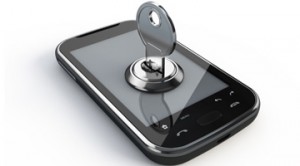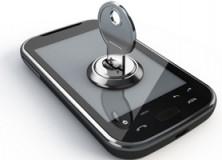
The first thing you should be aware of is that the biggest reasons owners want to unlock their cell phone is they are intending to change a network provider, want to sell (or give) the phone to someone on a different network, or plan on going overseas and don’t want outrageous roaming charges.
Chances are, your cell phone is tethered to one particular service provider. If you try to leave that company, your phone won’t work. It’s locked. If you travel to another country and try to use another company’s cell phone service on your old phone, that won’t work either. Locked again.
It doesn’t have to be this way, though. Depending on what kind of phone you have and what company you purchase cell phone service from, you might be able to unlock your phone. Then, you’ll have the freedom to use the same phone with different companies, or switch phone numbers and service accounts.
If you’ve ever wondered what the difference between a locked and an unlocked cell phone is, or if you’ve ever wondered if your phone can be unlocked, or how you can do it, that will be explained. Plus, you’ll learn why having an unlocked phone can be a good thing, and whether or not it’s legal.
Two Phone Types – GSM or CDMA
What’s the difference? GSM phones use subscriber identity module (SIM) cards. A SIM card is a small card that’s inserted into the phone. It contains all your contacts and settings, and it’s linked to your account. You can take the SIM card out, put it into another phone, and if someone calls your number, the new phone will ring. You can also put a different SIM card in your unlocked phone, and your phone will then work with whatever phone number and account is linked to that card. CDMA phones have no SIM cards and must be authenticated by the service provider, which makes unlocking a phone impossible.
How to Unlock GSM Phones
There are two reasons to unlock a phone. First, it gives you the freedom to switch between service providers. Assuming a long-term service contract doesn’t stand in your way (along with the contract termination fees that come along with it), you can change service providers as often as you like and never have to buy a new phone. Just put in a new SIM card supplied by your new service provider and your old phone will work just fine. You will have to go through the effort of migrating your old phone number to the new account, however.
Another reason involves traveling to Europe or Asia. If you use your North American phone while traveling, you will rack up enormous roaming fees. International cell phone companies don’t all rely on the two-year contract business model favored in the United States. You can buy a SIM card for your phone that’s pre-loaded with a fixed number of minutes that will work in whatever country you’ll be spending time in. Some European companies even offer SIM cards whose accounts work across much of the continent, not just in one country. Frequent travelers or even those taking occasional vacations will enjoy significant savings with an unlocked phone.
The process of unlocking a phone is actually quite simple now, and doesn’t require any technical knowledge. For some phones, you just have to enter a numeric code into the phone. For a fee (usually $60 or more), your own service provider may even give you the proper unlock code for your phone. There is also a third party company that provide cell phone unlock codes for a fee that ranges from $5 to about $20, depending on the model of phone you have.
Some phones need to be connected to a special device through the phone’s data port to be unlocked. Again, a few service providers offer this service, but most phone owners will have to turn to third parties to accomplish this. You pay them a fee, send them your phone, they unlock it and send it back.
How to Unlock Smartphones
Smartphones are often locked to a service provider. For example, the iPhone is locked to the AT&T network. For some smartphone owners, unlocking isn’t a matter of wanting to change service providers. These owners just want to gain control over the applications they can install on their device. A lot of smartphone manufacturers lock the devices so that only approved applications can be installed. The iPhone can only install apps purchased from Apple’s App Store, for instance. If there’s an application you want to install that isn’t officially approved and offered by Apple, you’re out of luck. That is, unless you can unlock your smartphone.
For a complete list of smartphones that can be unlocked with an unlock code (including early iphone versions) click the link at the end of this article.
Is Unlocking A Cell Phone Legal?
That argument has been raging for years. In 2006 it was. In 2009 it wasn’t. Then it was. Last year, in 2012, it was a copyright violation again. It is likely to be legal again sometime in 2014, as legislation makes its way toward the President’s desk – which should finally end the flip-flopping of judicial decisions. Currently, no individual has been convicted of unlocking their own cell phone. The law is a desire of corporations to squash anyone unlocking phones as a business enterprise (though they have had no success in prosecuting those who provide unlock codes through the Internet).
There is one caveat, however. Unlocking a phone might violate the terms of any contract you may have signed with your service provider. If so, you could be subject to whatever penalties are outlined in the contract and you may void any warranty that is still in force with your phone.
Personally, my phone is unlocked. I’m not saying how it got that way, but should you wish to unlock your phone there is a website that now makes it easy to do for a small fee. When arriving to the landing page, choose your phone manufacturer from the dropdown menu, then choose your model.
The unlock code and instructions are sent via email with a money back guarantee. CLICK HERE.
Disclaimer: On January 4, 2016, the owner of WestEastonPA.com began serving on the West Easton Council following an election. Postings and all content found on this website are the opinions of Matthew A. Dees and may not necessarily represent the opinion of the governing body for The Borough of West Easton.







